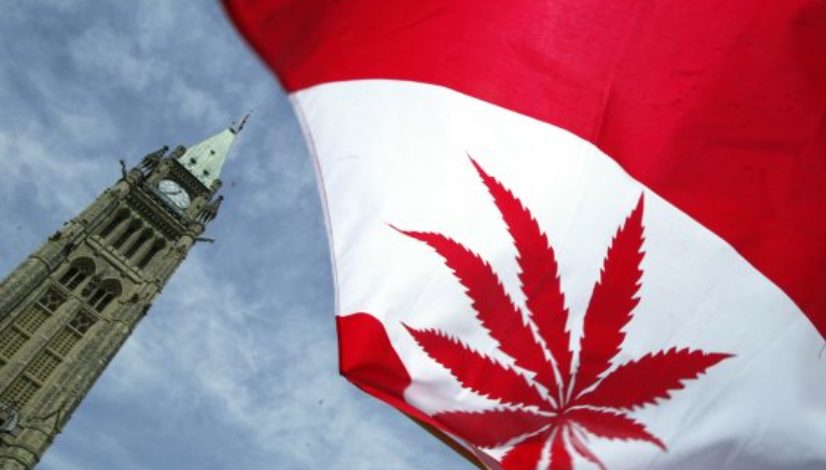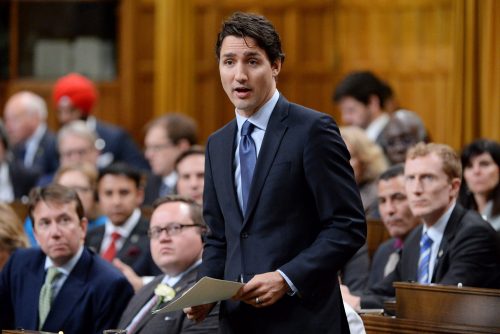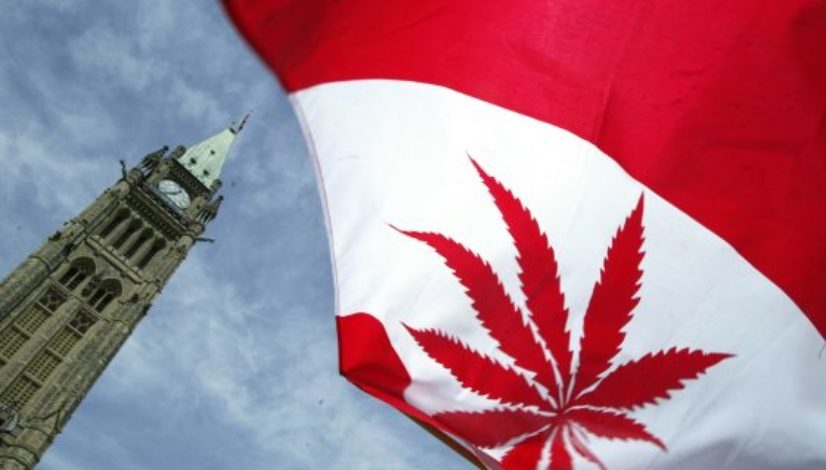Will Canada be able to fully legalize and regulate marijuana by July?

Published: Oct 5, 2017, 1:40 pm • Updated: Oct 5, 2017, 1:41 pm
By Alan Freeman, The Washington Post
OTTAWA – Canada is set to become the first industrialized nation to legalize and regulate marijuana from production to consumption by next July, but increasingly, Canadians are wondering: What’s the hurry?
The government of Prime Minister Justin Trudeau is pressing ahead with legislation to legalize cannabis, a move that a majority of the Canadian public supports. But stakeholders such as police chiefs and psychiatrists are urging caution and even delay, worried that a rush to legalization will encourage consumption among young people and increase the incidence of impaired driving.
Under the proposed legislation, the Canadian government would license the growing of cannabis by tightly regulated producers and set standards for potency and penalties for abuse; the provinces would decide on methods for distribution.
“If legislation is ready to go in July 2018, policing will not be ready to go in August. It’s impossible,” Rick Barnum, deputy commissioner of the Ontario Provincial Police, told the health committee of Canada’s House of Commons last month as it studied the proposed law.
More Canadian cannabis news
- Canadian police ask government to postpone marijuana legalization
- Canada looks to spend $274M to bolster cannabis-related law enforcement
- Ontario aims to have 150 marijuana stores run by the government
- Cannabis activist claims political views reason for denied entry to Canada
- Maine Border Patrol will still seize marijuana despite legalization
Barnum was part of a contingent of police chiefs from across Canada expressing concern that there isn’t time to train enough police officers to detect impaired driving among cannabis users and that if police are not ready for legalization, organized crime will take advantage of the situation to secure its hold on the market.
Doctors are also worried by the legislation, which will set the minimum age for consumption at 18, although Canada’s 10 provinces will be permitted to raise the minimum age if they wish.
Quebec’s Association of Psychiatrists has called the proposed law unacceptable, arguing that cannabis use in young people can lead to attention deficit and memory problems as well as an increased risk of psychotic disorders such as schizophrenia. The group wants to set the minimum age at 21 or higher, ban all advertising of cannabis and prohibit the growing of cannabis at home. (The proposed law would limit cannabis growers to four plants per household for personal use.)
“When you expose a growing brain to cannabis, you actually change the way it grows and matures,” said Karine Igartua, president of the Quebec psychiatrists group.
Opinion surveys continue to show that Canadians support legalization in principle. But in a recent survey conducted by Nanos Research, 57 percent expressed a lack of confidence that the federal and provincial governments will be ready with a legal framework for cannabis sales by next July. And 48 percent are worried that legalization would lead to increased consumption by youths.
“People are still quite supportive of the legalization of marijuana, but they want the government to get it right,” pollster Nik Nanos said, noting that approval of legalization has been in the range of 60 percent in several surveys.
 Canada Prime Minister Justin Trudeau addresses the House of Commons on Parliament Hill in Ottawa on Thursday, May 19, 2016. (Adrian Wyld, The Canadian Press via AP)
Canada Prime Minister Justin Trudeau addresses the House of Commons on Parliament Hill in Ottawa on Thursday, May 19, 2016. (Adrian Wyld, The Canadian Press via AP)
Trudeau shows no signs of wavering in his push for legalization, which he promised in his successful election campaign two years ago. “The current framework is hurting Canadians,” he said recently. “Criminal gangs and street gangs are making millions of dollars of profits off the sale of marijuana, and we need to put an end to this policing that does not work.”
In the United States, 29 states and the District of Columbia have legalized marijuana in some form, with eight jurisdictions allowing recreational use of pot, but cannabis remains illegal at the federal level, leading to a patchwork of regulations and enforcement.
The Canadian process is designed to result in full legalization across the country. Uruguay is the only country with a full regime for the legalized sale of cannabis, although a complication with U.S. banking regulations could imperil the country’s new marijuana market.
Trudeau’s government hopes that legalization will reduce access to marijuana by underage users. Bill Blair, a former Toronto police chief who is now a member of Parliament and Trudeau’s point person on cannabis legalization, said he understands public skepticism over whether the legislation will achieve this goal. But he says Canada already has the highest rates of pot usage among young people in the industrialized world. “You can’t regulate something that’s prohibited,” he said.
That is why the government plans to retain all of the current sanctions against the illegal production and distribution of cannabis. And it plans to add as a new offense the sale of cannabis to those 17 and younger, with a maximum penalty of 14 years in prison.
Blair said he received plenty of “candid advice” from Colorado, Washington and other states that have legalized recreational marijuana. In particular, Colorado officials suggested that Canadian authorities “start off strict” and relax regulations later. Doing the opposite is much more difficult, he said.
Canadian cannabis business
- Trading veggies for herb: Produce grower planting cannabis in million-square-foot greenhouse
- Canadian firm iAnthus makes $17.3M bid for spot in New York medical marijuana industry
- Analysis: U.S. marijuana policy will make it NAFTA’s biggest loser as Canada and Mexico cash in
- Thousands expected to attend Canada’s largest cannabis trade show to prep for legalization
- Cannabis companies flock to Canada as US laws keep them off stock exchange
That is one reason that the Canadian government will not be ready with rules governing the sale of edibles by July 1. Such rules will come later, after more study, so edibles will remain illegal. “You’ll be able to make your own cake [with legal cannabis], but you won’t be able to sell it until there are strict rules in place,” Blair said.
He also gave assurances of strict controls on branding for cannabis sales. “There will be limits on how branding can be displayed so it can’t be used for marketing to kids,” he said.
Another way that marijuana legalization is shaping up differently from the U.S. experience is the decision by Ontario, Canada’s most populous province, to directly control marijuana sales through a network of up to 150 outlets run by a subsidiary of the provincial alcohol monopoly. Ontario Finance Minister Charles Sousa said the provincial government intends to shut down illegal pot dispensaries that have popped up around the province and restrict sales to its own outlets.
The province of Quebec is believed to be leaning in the same direction.
The private dispensaries, which now offer medical marijuana and had hoped to expand into the recreational market, plan to fight back.
Paul Lewin, a Toronto lawyer specializing in cannabis cases, says Ontario’s marketing plan will not succeed and will force the dispensaries underground. “In the places where it will be a monopoly, it will fail,” Lewin said, calling the proposed state-run monopoly a new form of “prohibition.”
“The province [of Ontario] just wants a lot of money,” Lewin said.
How profitable the cannabis market ends up being for the government remains to be seen. While officials such as Blair concede a need to keep prices high to discourage consumption among young people, they are aware that if prices are too high, illicit producers will stay in business.
On Tuesday, Trudeau announced to provincial leaders that the federal government plans to impose a tax of $1 – about 80 U.S. cents – per gram on cannabis costing up to $10 a gram plus 10 percent on cannabis priced above $10 a gram. He promised that the federal government would split the revenue 50-50 with the provinces, but the premiers have argued for more.
As for the push for a delay in the legalization date, Blair remains determined. “It’s important that we get this done,” he said. “The price of delay is continued deaths on our roadways, continued jeopardy for kids and billions of dollars in profits for organized crime.”
Topics: Canada, canada marijuana legalization, Don’t Miss, driving high, marijuana taxes, police, teen use




